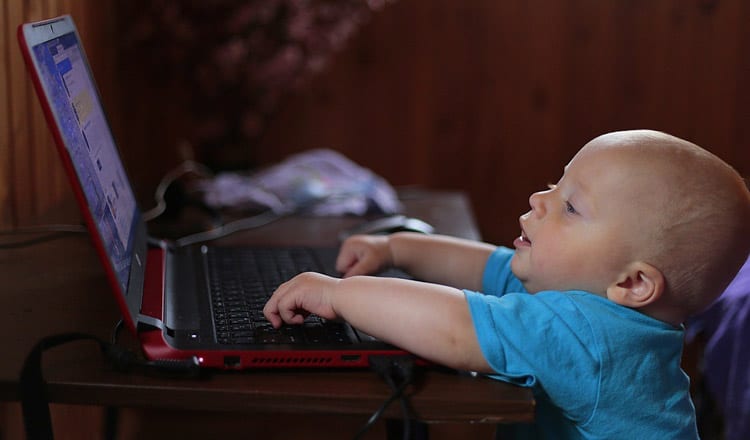Are you losing the battle to wrestle your child away from the TV or computer in favour of playing outside these school holidays?
You’re not alone. Disturbing new research from Specsavers reveals that the average Aussie child now spends up to 35 hours a week staring at some kind of screen, an increase of five hours on the year before.

Specsavers optometrist and director of optometry Peter Larsen says staring at screens, and being indoors for extended periods of time can increase the risk of becoming short-sighted.
This means the eyes focus well only on close objects, while more distant objects appear blurred.
“Children are more at risk, as their eyes are still developing,” warns Peter.
“The biggest message I would like to get across to parents is to make sure their children spend time outside playing, and ensure they get their eyes tested.”
Peter adds that almost one in three Aussie children aged 1-17 have never had an eye test, according to the latest research.

Child psychologist Dr Michael Carr-Gregg says poor eyesight can cause learning and behavioural problems, particularly for younger children who may have problems explaining the difficulties they’re having.
“They may not even be aware they have a problem at all,” he says.
To better protect your child’s eyesight, Michael recommends trying the five tips below to limit their time in front of TV and computer screens.
1. Use parental controls
Use programs and apps that you can set to turn off computers, video games, tablets, and smartphones after a given amount of time. OurPact is a simple parental control app that allows parents to schedule screen time by blocking internet and app access.
2. Parental modelling
Watch how often you use your own devices: If you keep your face buried in your phone, your kids won’t see a good reason why they should get off their computer screens. Plus, those devices affect the time you spend with your children. Researchers who studied families at fast-food restaurants noticed parents were often more focused on their smartphones than on the children at the table.
3. Help your kids find other ways to have fun
If a child has nothing to do but stare at a screen, then we should not be surprised when that is what he or she does. Encourage non tech ‘islands of competence’ – i.e. art, music, dance, drama and sport. Have art supplies, books, Frisbees, and bikes available and ready when your kids say that they are bored.

4. Set limits and boundaries
You’ve got to set guidelines. You could say, for example, that watching TV is OK from 7-9pm. Or after the homework is done or only on Monday, Wednesday and Friday. Consistency through the years is also important.
5. Keep media out of the bedroom
It’s much easier to exercise control when your child is within view. That means keeping video games, phones, tablets, and computers in the common area where you can keep an eye on things.









